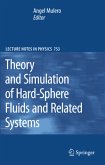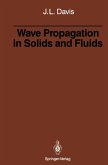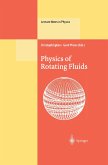A self-contained textbook, Microhydrodynamics and Complex Fluids deals with the main phenomena that occur in slow, inertialess viscous flows often encountered in various industrial, biophysical, and natural processes. It examines a wide range of situations, from flows in thin films, porous media, and narrow channels to flows around suspended particles. Each situation is illustrated with examples that can be solved analytically so that the main physical phenomena are clear. It also discusses a range of numerical modeling techniques. Two chapters deal with the flow of complex fluids, presented first with the formal analysis developed for the mechanics of suspensions and then with the phenomenological tools of non-Newtonian fluid mechanics. All concepts are presented simply, with no need for complex mathematical tools. End-of-chapter exercises and exam problems help you test yourself. Dominique Barthès-Biesel has taught this subject for over 15 years and is well known for her contributions to low Reynolds number hydrodynamics. Building on the basics of continuum mechanics, this book is ideal for graduate students specializing in chemical or mechanical engineering, material science, bioengineering, and physics of condensed matter.
Hinweis: Dieser Artikel kann nur an eine deutsche Lieferadresse ausgeliefert werden.
Hinweis: Dieser Artikel kann nur an eine deutsche Lieferadresse ausgeliefert werden.








